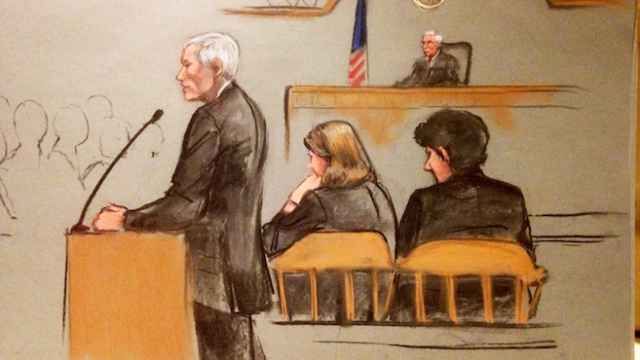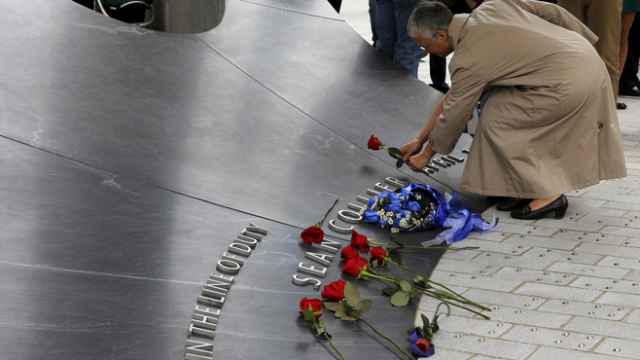BOSTON — The jury in the Boston Marathon bombing trial on Friday began its third day of deliberations over whether Dzhokhar Tsarnaev should be sentenced to death or to life in prison without the possibility of release.
Tsarnaev, a 21-year-old ethnic Chechen was convicted last month of killing three people and injuring 264 others by detonating a pair of homemade pressure-cooker bombs at the race's crowded finish line on April 15, 2013.
Three days later, he and his 26-year-old brother shot a police officer to death, carjacked a Chinese businessman and hurled bombs at police, triggering a day-long lockdown of most of the Boston area as police searched for Tsarnaev.
Federal prosecutors say that Tsarnaev, who moved with his family to Cambridge, Massachusetts, from Russia a decade before the attack, was an adherent of al Qaeda's militant Islamist ideology, and wanted to "punish America" with the attack.
Defense attorneys portray him as a hapless teenager who was in the thrall of his older brother, Tamerlan, who they contend dreamed up the attack after being spurned by a militant group he had attempted to join on a 2012 trip to Russia.
Tamerlan died in the early hours of April 19, 2013, after a gunfight with police in suburban Watertown, Massachusetts, that ended when Dzhokhar ran over Tamerlan with a stolen car.
During the trial, the jury saw gruesome, sometimes graphic videos of the explosions and their bloody aftermath, and heard from some of the 18 people who lost limbs in the bombing, as well as friends and family of the four people killed by the Tsarnaevs.
Eight-year-old Martin Richard, 23-year-old Chinese exchange student Lingzi Lu and 29-year-old restaurant managed Krystle Campbell died in the bombing. Massachusetts Institute of Technology police officer Sean Collier was shot dead by the Tsarnaevs three days later.
A Message from The Moscow Times:
Dear readers,
We are facing unprecedented challenges. Russia's Prosecutor General's Office has designated The Moscow Times as an "undesirable" organization, criminalizing our work and putting our staff at risk of prosecution. This follows our earlier unjust labeling as a "foreign agent."
These actions are direct attempts to silence independent journalism in Russia. The authorities claim our work "discredits the decisions of the Russian leadership." We see things differently: we strive to provide accurate, unbiased reporting on Russia.
We, the journalists of The Moscow Times, refuse to be silenced. But to continue our work, we need your help.
Your support, no matter how small, makes a world of difference. If you can, please support us monthly starting from just $2. It's quick to set up, and every contribution makes a significant impact.
By supporting The Moscow Times, you're defending open, independent journalism in the face of repression. Thank you for standing with us.
Remind me later.





